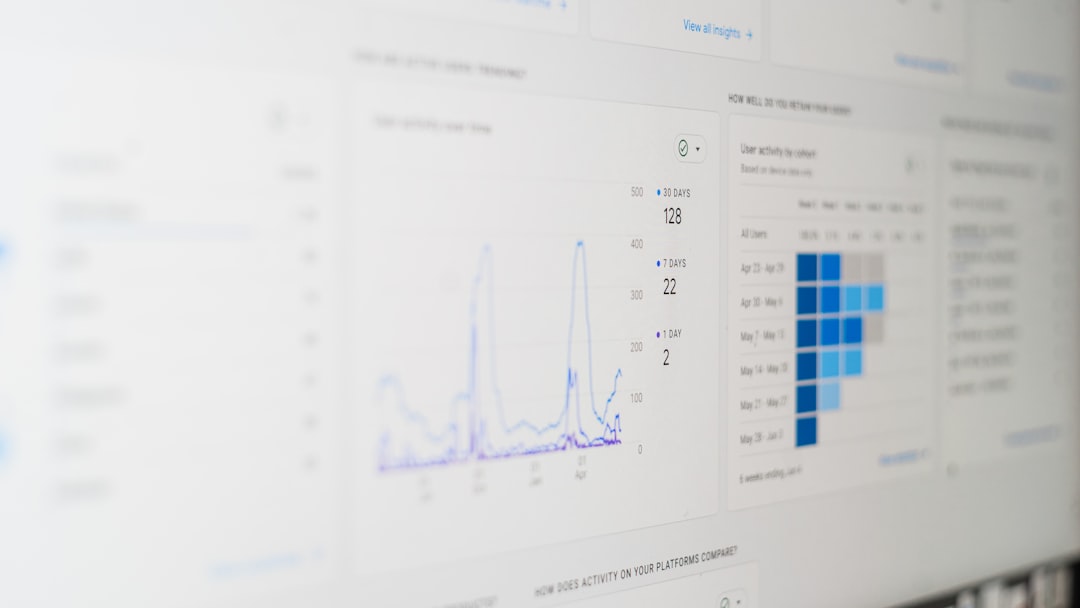When it comes to delivering professional performance reports to clients, many WordPress website managers lean toward Jetpack’s reporting tools. Jetpack offers a broad spectrum of features, including security, performance monitoring, backups, and most notably, built-in reporting capabilities. However, a major drawback for agencies and freelancers aiming to present a branded experience to their clients is the lack of true white-labeling capabilities with Jetpack reports. This has sparked a growing demand for viable white-label alternatives that offer similar or enhanced features while allowing a customizable, brand-specific presentation.
The Limitations of Jetpack Reporting
Jetpack’s default reporting tools serve their purpose for basic site owners, giving insights into site stats, downtime monitoring, and security events. However, things get tricky when professionals try to use Jetpack for client reporting, particularly in an agency setting.
- No Full White-Labeling: Jetpack emails and dashboards are Jetpack-branded, which disrupts the cohesive brand experience that agencies seek to offer.
- Limited Report Customization: The platform restricts what information can be included in reports, making it less flexible for those wanting tailored analytics.
- Dependence on WordPress.com: Since Jetpack requires a WordPress.com connection, some clients may have concerns about data privacy or platform dependability.
Given these limitations, it’s understandable that marketers, developers, and web agencies often look elsewhere. The market has seen a rise in tools that offer specialized reporting with a white-label focus. Below are some popular, effective alternatives.
Top White-Label Alternatives for Jetpack Reports
1. ManageWP
ManageWP is a comprehensive website management tool under the GoDaddy umbrella, popular for aggregating numerous website tasks into a single dashboard, including maintenance updates, backups, uptime monitoring, and client reporting.
- White-Labeling: Offers customizable reporting templates and allows users to brand reports completely (logos, titles, colors, etc.).
- Features: Includes uptime monitoring, Google Analytics integration, SEO performance, and security reports.
- Pricing: Offers a flexible pay-as-you-go model, with reporting features available as an add-on.
ManageWP is well-suited for agencies managing multiple websites, providing both scalability and brand consistency. However, the interface may feel clunky to newcomers.

2. InfiniteWP
InfiniteWP is another self-hosted WordPress management solution catering specifically to freelancers and agencies. Being a self-hosted platform, it allows for better control over branding and privacy.
- White-Label Friendly: Complete white-labeling in both reports and dashboard experience. Agencies can replace all default branding.
- Advanced Reporting: Send scheduled reports to clients covering updates, SEO, performance, and security in one document.
- One-Time Pricing: After a one-time fee, users can run unlimited websites with no recurring subscription model.
InfiniteWP is ideal for those who prefer to operate independently of third-party clouds. That said, its interface and user experience may not be as polished as some cloud-based tools.
3. WP Umbrella
WP Umbrella has rapidly become a fan favorite, especially among European agencies. Known for its clean UI and user-first design, WP Umbrella makes multi-site management simple and intuitive.
- White-Label Options: Create fully branded PDF reports with drag-and-drop widgets to organize data by priority and relevance.
- Multi-Language Support: Especially useful for agencies with clients across different regions.
- Fast Setup: Users report getting started quickly without the need for exhaustive configurations.
One of WP Umbrella’s main advantages lies in client communication. The platform provides options to send monthly or weekly reports automatically, reducing manual effort significantly.

4. MainWP
MainWP is a powerful, open-source WordPress management tool that rivals Jetpack in scope and surpasses it in customization. Built for freelancers and focused on privacy, it offers more granular control over data, functionality, and presentation.
- White-Label Dashboard & Reports: Allow admins to completely conceal MainWP labels, replacing them with agency branding.
- Expandable Modules: With more than 40 extensions, users can pick just the functionality they need.
- Open Source: Offers independence from third-party cloud providers.
MainWP requires a slightly more technical setup but pays off with robust reporting capabilities and brand presentation options that are unparalleled in the segment.
Benefits of Using a White-Label Reporting Tool
Agencies and professionals offering web services can greatly benefit from better reporting tools, not only for the data they convey but also in how they convey it. Here are a few of the key upsides:
- Professional Image: Clients perceive branded reports as more professional, boosting trust and credibility.
- Client Retention: Frequent, clear communication of completed work (e.g., updates, security scans, SEO improvements) increases perceived value and retention.
- Time-Saving Automation: Automatically sending periodic reports at specified intervals reduces manual involvement.
Choosing the Right White-Label Solution
The right choice depends heavily on your business model. Agencies managing a large portfolio of clients may prioritize scalability, whereas freelancers might look for one-time purchase models or open-source solutions. Consider the following when evaluating tools:
- Integration: Ensure the tool integrates with services your clients use—like Google Analytics, uptime tools, or keyword trackers.
- Template Flexibility: Look for tools with customizable visual layouts to create a tailored look and feel.
- User Roles: Some tools allow you to give limited dashboard access to clients, further enhancing transparency and trust.
Transforming Client Relationships with Better Reporting
Switching from default Jetpack reports to robust white-label alternatives isn’t merely a cosmetic upgrade. It’s a strategic move toward building long-term client relationships by emphasizing transparency, professionalism, and value. When clients receive detailed, branded insights into site performance and maintenance, it reinforces the agency’s role as a trustworthy and proactive partner.

Frequently Asked Questions (FAQ)
-
Q: Can I use Jetpack and a white-label tool together?
A: Yes. You can continue using Jetpack features (like backups and security) while using an external tool solely for white-label reporting. -
Q: What reports are most important to include for clients?
A: Typically, clients value uptime reports, plugin/theme updates, SEO rankings, site performance, and security logs. Customizing reports to client goals is ideal. -
Q: Are white-label tools secure?
A: Most reputable white-label tools adhere to strict data security practices. Self-hosted options like MainWP and InfiniteWP give you total data control. -
Q: What if my client doesn’t understand technical reports?
A: Use tools that let you include brief explanations, performance scores, or even customized sections in layman’s terms to bridge the gap.
In today’s competitive landscape, the tools you use reflect on your agency’s professionalism. Jetpack may be a great start, but for those looking to scale, automate, and elevate their client communications, embracing a white-label alternative is a strategic investment in business growth.


